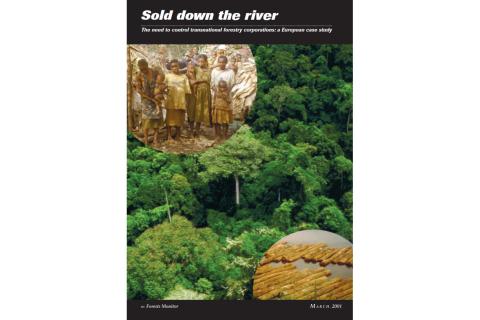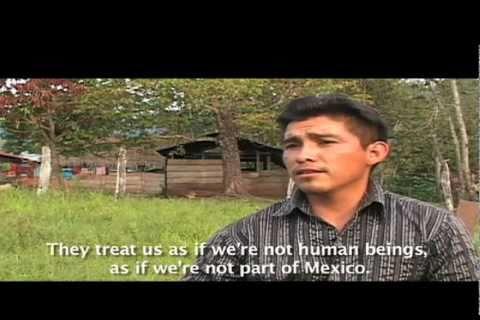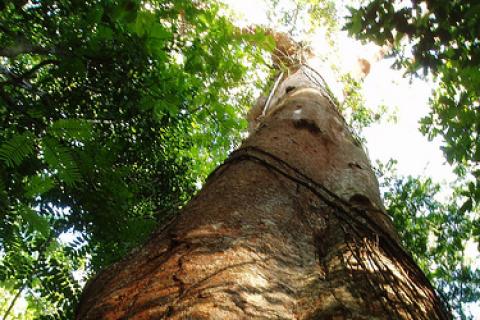For a number of years, peasant farmer communities in the province of Niassa, in northern Mozambique, have been fighting back against the expansion of monoculture pine and eucalyptus plantations. This expansion has caused serious problems because it is taking over land from machambas, small family farms used to grow food. Now the struggle waged by these communities has received a significant boost.
Other information
Brazil: Women in Camp Sister Dorothy Stang – for their right to life, against monoculture eucalyptus
On the evening and early morning of 27 th and 28th February, women of the Landless Rural Workers Movement from all over the Extreme South of Bahia gathered in the area that would become the Camp Sister Dorothy Stang. Many brought their children and looked like they were going to the best party in the world. On 28 th March, round about 4am, before the sun rose on the horizon, hundreds of useless eucalyptus trees were falling on an area planted by Veracel Cellulose, the largest land owner in the state of Bahia. And that’s how they resisted for the next 10 days.
Powerful countries and corporations have targeted the African continent to become a commodity supplier for their industrial needs. This has led to intense land grabbing with industrial oil palm plantations becoming in recent years a new source of land grabbing in many African countries.
On April 20, the Finnish-Swedish giant of the forestry industry Stora Enso held their annual shareholder meeting in Helsinki where it planned to distribute part of its 2010 EUR 817.4 million profit.
Sold Down the River - The Need to Control Transnational Forestry Corporations: A European Case Study
By Forests Monitor, 2001
Sold Down the River - The Need to Control Transnational Forestry Corporations: A European Case Study
Short documentary video by Global Justice Ecology Project
In March, 2011, Global Justice Ecology Project traveled to the village of Amador Hernandez, within the Montes Azules Biosphere Reserve, deep in the Lacandon Jungle of Chiapas, Mexico, to investigate how climate policies such as REDD are impacting the local population. This is what they found...
In Buenos Aires, Argentina, on March 22-25, the International Committee for Food Sovereignty-Regional Coordinator for Latin America and the Caribbean (CIP-ALC) organized the Third Special Conference for Food Sovereignty, Rights and Life. The meeting was attended by representatives of social organizations in 20 countries.
Indonesia is a crucial country for REDD. It has one of the fastest rates of deforestation in the world. And, as a direct result of this deforestation (particularly the destruction of peatswamp forests) Indonesia is the world’s third highest emitter of carbon dioxide.
On January 31, 2011, the Indian movement POSCO Pratirodh Sangram Samiti (POSCO Resistance Struggle Movement) issued a press release to denounce Indian Environment Minister Jairam Ramesh’s decision to approve the POSCO India Steel-Power Production-Captive Port project (http://wrm.org.uy/countries/India/OK_POSCO_project.pdf).
Asia Pulp & Paper (APP) is a giant pulp and paper company with a notorious eco-criminal record. It is responsible of deforesting Indonesian forests and peatlands in Riau province, Sumatra, destroying the territory and livelihoods of indigenous communities who have been living there for centuries and threatening the survival of some of them as well as leading Sumatran tigers, elephants and orangutans to the verge of extinction.
By REDD Monitor
REDD, or reduced emissions from deforestation and forest degradation, is one of the most controversial issues in the climate change debate. The basic concept is simple: governments, companies or forest owners in the South should be rewarded for keeping their forests instead of cutting them down. The devil, as always, is in the details.
Video - In a remote corner of Brazil's Atlantic coast, they say time is a fiction. This ancient forest is seemingly unspoiled by modern life -- beyond the reach of men, machines, and markets. But a closer look reveals something very different happening here. Reported by Mark Schapiro, produced by Andres Cediel & co-produced by Daniela Broitman.
Watch the video here: http://www.pbs.org/frontlineworld/stories/carbonwatch/2010/05/the-carbon-hunters.html



